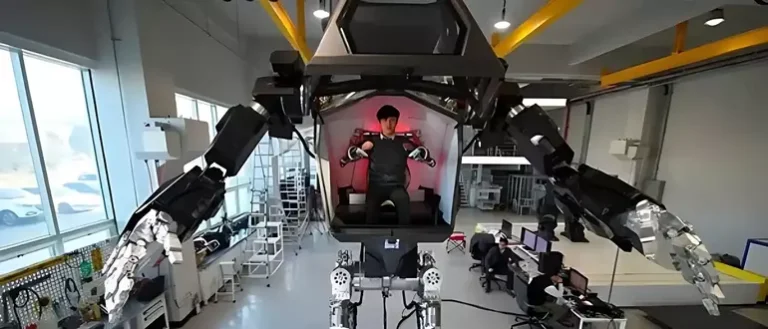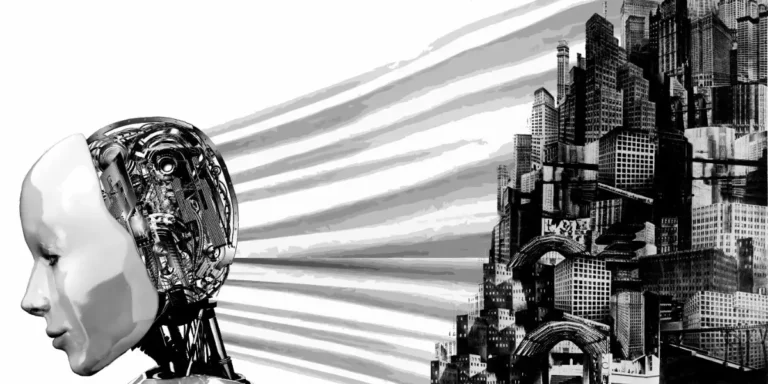The applications of artificial intelligence (AI) are expanding rapidly. Many questions if AI will replace humans in many areas due to its learning and decision-making abilities.
Physics is one such industry. Physics takes years to perfect. With AI’s advances, physicists may be replaced by AI.
This blog article addresses the question: Will AI replace physicists? And explore the following:
- Trending role of AI in physics research
- How will AI impact the job market of this sector
- Required skill set for physicists to utilize AI and stay relevant
- Benefits and limitations of AI in this sector.
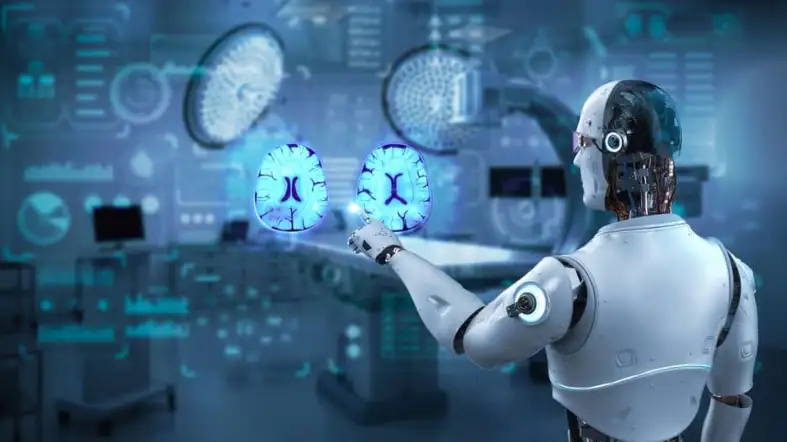
Will AI Replace Physicists?
No, AI cannot fully replace physicists. While AI can perform complex calculations and analyze data, it still relies on real-world data input and human scientists’ expertise.
Physicists play an important role in developing and improving AI algorithms and ensuring their accuracy.
AI can assist physicists in their research by helping them analyze data more quickly and accurately, but it cannot replace their expertise and knowledge.
What Role Does AI Play In Physics Research?
AI Applications in Physics Research:
AI has numerous applications in physics research, such as modeling protein structures, predicting extreme weather events, and detecting gravitational waves.
AI algorithms can identify subtle patterns in large data sets that may have gone unnoticed using traditional methods.
This capability is particularly useful in particle accelerators and other experiments that generate vast amounts of data.
AI can improve data analysis by detecting patterns and revealing new insights that can help scientists make accurate predictions.
AI for Data Analysis:
One of the most significant benefits of AI in physics research is its ability to analyze complex data sets.
AI algorithms can extract patterns, identify anomalies, and provide insights that traditional methods may have missed.
This capability is especially useful in particle physics, where experiments generate petabytes of data.
AI can help physicists detect rare events in the data, such as the Higgs boson, which led to the 2013 Nobel Prize in Physics.
AI-powered data analysis can help scientists refine their models, make more accurate predictions, and identify new physics phenomena.
Algorithmic Bias and Interpretability:
AI models are susceptible to algorithmic bias, which occurs when the model makes decisions that discriminate against certain groups of people.
Physicists play a critical role in identifying and mitigating algorithmic bias in AI models.
They use methods such as explainability and interpretability to understand how AI models make decisions.
This approach helps physicists identify sources of bias and make models more transparent, fair, and ethical.
Ethical and Equitable Use of AI:
As AI continues to play an increasingly significant role in physics research, it’s essential to ensure its ethical and equitable use.
Scientists and citizens must engage in discussions surrounding AI’s development and usage.
Ethical considerations include ensuring that AI models do not discriminate against certain groups of people and that they protect individual privacy.
Equitable considerations involve ensuring that AI benefits society as a whole, rather than a select few.
Future of AI in Physics Research:
The future of AI in physics research is bright. AI can help physicists solve complex problems, improve data analysis, and identify new physics phenomena.
AI algorithms can also help physicists design experiments, create new models, and refine their understanding of fundamental physics concepts.
The integration of AI into physics research is expected to accelerate the pace of scientific discovery and deepen our understanding of the universe.
How AI Might Affect the Job Market for Physicists
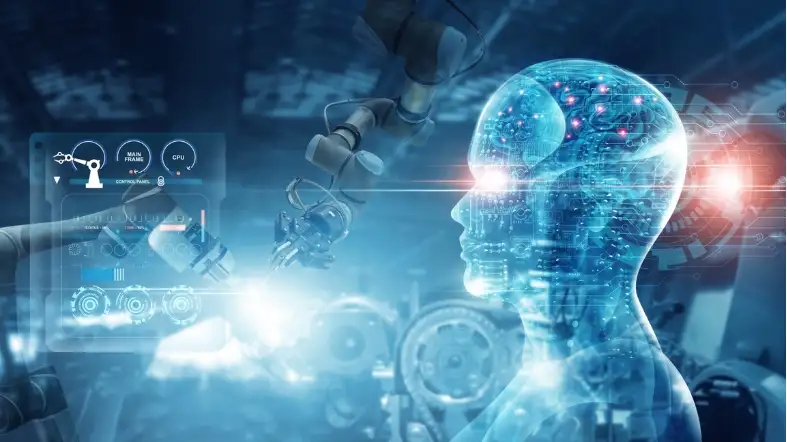
Job Losses:
According to the OECD’s literature review, the increasing adoption of automation, artificial intelligence (AI), and other technologies suggests that the role of humans in the economy will shrink drastically, wiping out millions of jobs in the process.
This is because AI can perform certain tasks that were previously done by humans, such as data analysis, modeling, and simulation, faster and more accurately, resulting in job losses.
For example, in the finance industry, AI can automate routine tasks like credit checks, reducing the need for manual labor.
As a result, physicists working in industries like finance, research, and development may face job losses due to the implementation of AI.
Create New Opportunities for Physicists
It’s crucial to keep in mind that, despite the possibility of some employment being lost to AI, there may also be new ones created.
According to the OECD analysis, the application of AI is actually likely to result in a net increase in employment as new positions are generated to develop and maintain AI systems.
The increased demand for AI-related skills may create new work prospects for physicists, given the highly technical nature of the field.
AI is More Likely to Impact White-Collar Jobs
Research by the Brookings Institution found that white-collar jobs typically require a bachelor’s degree and are better paid may be most susceptible to AI’s spread into the economy [3].
While physicists are highly educated professionals, it’s worth noting that their jobs are not typically classified as white-collar jobs.
This means that they may be less likely to be affected by the spread of AI in the job market.
Changing on Work Environment:
The impact of AI on the work environment is another factor that physicists need to consider.
According to the OECD’s literature review, AI can create new jobs that require non-technical skills, such as communication, teamwork, and creativity.
However, it can also lead to a stressful work environment, as physicists may have to work with machines that are programmed to replace them.
For example, physicists working in healthcare may have to use AI-assisted machines that can diagnose diseases and suggest treatments, making their role in the diagnosis and treatment process less significant.
Job Postings Requiring AI Skills
Finally, physicists must consider the AI skills required for their job. As per the OECD’s report, job postings that require AI skills accounted for only 0.14% of overall postings in the United Kingdom and 0.24% in the United States.
This means that not all physicists must develop AI skills to remain competitive in the job market.
However, it is essential to keep an eye on the changing job requirements and develop skills in emerging areas, such as AI, to future-proof their careers.
Essential Skills Physicists Need To Develop To Stay Relevant In The Age Of AI
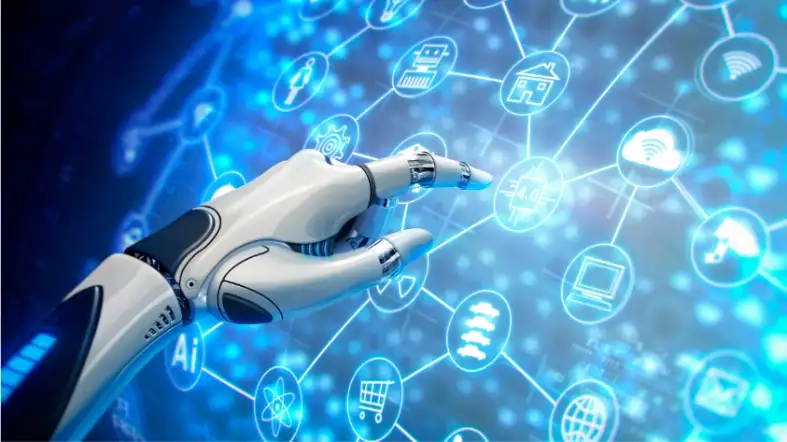
Data Analysis
In the era of AI, physicists must become data analysis professionals. They must to be capable of quickly and effectively analyzing massive amounts of data using both conventional statistical methods and machine learning algorithms.
Programming languages like Python, R, and MATLAB, as well as databases and data visualization software, must be mastered by physicists.
Machine Learning
In the age of AI, physicists must become experts in machine learning if they want to remain relevant.
They should be able to comprehend the fundamentals of machine learning techniques and how they are used in physics for things like data clustering, pattern detection, and picture recognition.
Additionally, physicists should be knowledgeable about the most recent machine-learning methods and libraries.
Quantum Computing
From condensed matter physics to high-energy physics, quantum computing is a fast expanding field that has the potential to change many fields of physics.
The development of skills in quantum computing, particularly programming and algorithm building for quantum computers, is essential for physicists who want to remain relevant in the AI era.
Interdisciplinary Collaboration
In the extremely interdisciplinary subject of artificial intelligence, physicists must work with specialists in computer science, mathematics, and engineering.
Physicists should be able to collaborate on multidisciplinary research projects and communicate clearly with subject matter specialists from these other disciplines.
Flexibility and Adaptability
To remain relevant in the field of artificial intelligence, physicists must be agile and adaptable.
They should be able to apply their current talents to new and developing problems and be willing to acquire new technologies as they become available.
Creativity and Innovation
Physicists who want to remain relevant in the field of artificial intelligence (AI) must be able to think creatively and innovatively in order to solve challenging challenges.
They should be able to come up with fresh concepts, try out novel strategies, and take reasonable risks.
Ethics and Responsibility
Physicists need to be conscious of the ethical and societal ramifications of their work as AI grows more widespread in our daily lives.
They should be able to act ethically to make sure that their work is applied for the good of humanity and be able to consider how their research will affect society critically.
The Potential Benefits Of AI In The Field Of Physics
Accelerating Discoveries
AI-driven frameworks are accelerating a diverse array of critical areas of physics research.
AI can analyze large amounts of data quickly, enabling researchers to identify patterns and develop models quickly.
These breakthroughs demonstrate the lasting impact AI is only beginning to have on scientific discovery.
Building Better AI
Physicists have had a significant impact on building better AI, and many end up working on AI research in the industry.
This is because computing ability and the idea of a “thinking machine,” or artificial intelligence, have grown hand-in-hand.
Solving Complex Problems
In a variety of physics disciplines, including radiography, atmospheric sciences, geophysics, oceanography, plasma physics, astrophysics, and quantum information, AI is being utilized to address challenging problems.
Compared to humans, AI can solve these issues more quickly and effectively.
Creating New Models
AI can be used to create new models for various phenomena in physics, such as protein structures, climate modeling, and detecting gravitational waves.
For example, DeepMind, a British AI lab, and subsidiary of Alphabet, created a model to represent protein structures that has major impacts in the healthcare sector.
Predicting Extreme Events
AI can help predict extreme events such as heat waves, freezes and their impact on infrastructure and human health.
By analyzing large amounts of data, AI can identify patterns and make accurate predictions that can help prepare for these events.
For example, Rice University fluid dynamicist Pedram Hassanzadeh and his team used AI to predict extreme weather events with greater accuracy.
AI’s Potential and Limitations in Physics Research
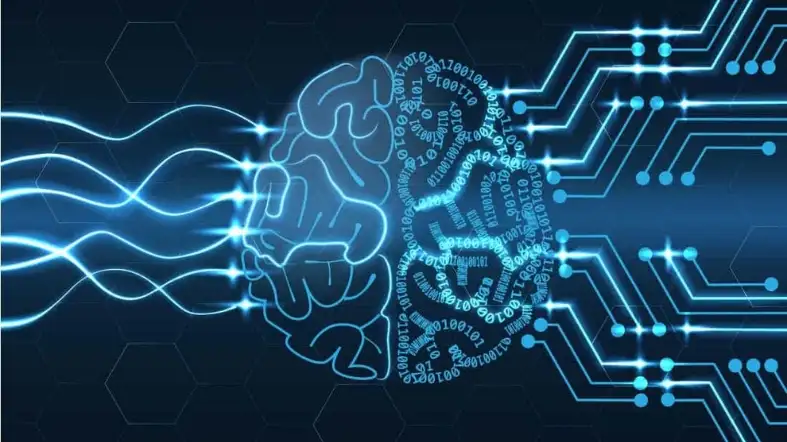
Replacing Human Intuition and Creativity
Although AI algorithms can analyze large datasets quickly, they are limited to the data they are trained on.
This limitation can lead to biased or incomplete conclusions. Human physicists often rely on intuition to guide their research, which is difficult for AI algorithms to replicate.
Physics phenomena can be complex and not easily reducible to simple patterns, and relying too heavily on AI algorithms to analyze data may cause physicists to overlook important nuances and miss new insights.
The Possibility of Ethical Concerns
One of the major ethical concerns regarding the use of AI in physics research is the potential for biased or discriminatory decision-making.
If AI algorithms are trained on biased or incomplete data, they may make decisions that unfairly disadvantage certain groups of people.
Additionally, AI algorithms lack the moral compass of humans, which could lead to ethical issues.
For example, an AI algorithm may make a decision based on data without considering the ethical implications of that decision.
The Risk of Oversimplification
AI algorithms are designed to find patterns in data, but in physics, many phenomena are complex and cannot be easily reduced to simple patterns.
While AI algorithms can analyze data quickly, they may miss important nuances that could lead to new insights.
Overreliance on AI algorithms to analyze data could cause physicists to overlook important details, potentially hindering progress in the field.
The Potential for AI to Reinforce Existing Biases
If AI algorithms are trained on biased data, they may perpetuate inequality and limit progress by making decisions that reinforce those biases.
For example, an AI algorithm trained on data with gender bias may continue to make decisions that discriminate against women.
To avoid this, it is important to ensure that AI algorithms are trained on diverse, representative data that accurately reflects the population.
The Possibility of Data Overload
While AI algorithms can analyze large amounts of data quickly, relying too heavily on them to analyze data may cause physicists to become overwhelmed with information.
Including irrelevant data in the analysis may also compromise the quality of the data. To avoid this, physicists should ensure that the data used in AI algorithms are relevant and high quality.
FAQs
Can AI Run Complex Physics Experiments?
Yes, AI can be used to run complex experiments. In fact, physicists are already using AI to run experiments, putting some of them out of a job.
Can AI Come Up With New Physics Theories?
AI has the potential to come up with new physics theories by analyzing physical phenomena and uncovering relevant variables.
However, the variables it discovers may be unexpected.
What Can AI Do In Physics?
AI can help physicists solve complex problems and accelerate research in a wide range of areas.
AI can understand or sense, learn, use models to make decisions, and interact with humans.
Can AI Replace Human Creativity In Physics Research?
No, AI cannot replace human creativity in physics research.
While AI can help physicists come up with new ideas, it cannot replace the human ability to think creatively and develop innovative solutions to complex problems.
Can AI Replace The Need For Human Intuition In Physics Research?
No, AI cannot replace the need for human intuition in physics research.
While AI can help physicists analyze data and make predictions, it cannot replace the human ability to make intuitive leaps and come up with new ideas.
Conclusion
AI has advanced physics, but it won’t replace physicists anytime soon. Physics involves technical knowledge, creativity, intuition, and out-of-the-box thinking.
Physics requires intuition and inventiveness, which AI lacks. AI and physicists can collaborate to progress physics, but they will not replace one other.
Physicists will continue to expand our understanding of the universe as AI advances.
